
Weixing, or “surname guessing,” was a highly organized lottery practice in China wherein money was bet on the surnames of which candidates would pass the civil and military examinations. For centuries, up until 1905, the examination system was the primary means by which the Chinese state selected new officials from all over the empire and a way for commoners to climb the social ladder.
How was betting on the examinations possible and why did it matter? Opening with a weixing-related examination scandal in 1885, En Li reconstructs the inner mechanisms of weixing and other lottery games in the southern province of Guangdong. By placing the history of the lottery in a larger context, the author traces a series of institutional revenue innovations surrounding lottery regulation from the 1850s to the early 1900s, and depicts an expansive community created by the lottery with cultural and informational channels stretching among Guangdong, Southeast Asia, and North America. This book sheds light on a new reality that emerged during the final decades of China’s last imperial dynasty, with a nuanced understanding of competitions, strategic thinking by lottery players and public officials seeking to maximize revenues, and a global network of players.

Weixing, or “surname guessing,” was a highly organized lottery practice in China wherein money was bet on the surnames of which candidates would pass the civil and military examinations. For centuries, up until 1905, the examination system was the primary means by which the Chinese state selected new officials from all over the empire and a way for commoners to climb the social ladder.
How was betting on the examinations possible and why did it matter? Opening with a weixing-related examination scandal in 1885, En Li reconstructs the inner mechanisms of weixing and other lottery games in the southern province of Guangdong. By placing the history of the lottery in a larger context, the author traces a series of institutional revenue innovations surrounding lottery regulation from the 1850s to the early 1900s, and depicts an expansive community created by the lottery with cultural and informational channels stretching among Guangdong, Southeast Asia, and North America. This book sheds light on a new reality that emerged during the final decades of China’s last imperial dynasty, with a nuanced understanding of competitions, strategic thinking by lottery players and public officials seeking to maximize revenues, and a global network of players.

From the mid-seventeenth to the mid-nineteenth century, millions of Korean men from all walks of life trained in the arts of war to prepare not for actual combat but to sit for the state military examination (mukwa). Despite this widespread interest, only for a small minority did passing the test lead to appointment as a military official. Why, then, did so many men aspire to the mukwa?
Eugene Y. Park argues that the mukwa was not only the state's primary instrument for recruiting aristocrats as new members to the military bureaucracy but also a means by which the ruling elite of Seoul could partially satisfy the status aspirations of marginalized regional elites, secondary status groups, commoners, and manumitted slaves. Unlike the civil examination (munkwa), however, that assured successful examinees posts in the prestigious central bureaucracy, achievement in the mukwa did not enable them to gain political power or membership in the existing aristocracy.
A wealth of empirical data and primary sources drives Park's study: a database of more than 32,000 military examination graduates; a range of new and underutilized documents such as court records, household registers, local gazetteers, private memoirs, examination rosters, and genealogies; and products of popular culture, such as p'ansori storytelling and vernacular fiction. Drawing on this extensive evidence, Park provides a comprehensive sociopolitical history of the mukwa system in late Choson Korea.
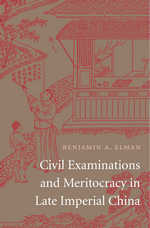
During China's late imperial period (roughly 1400-1900 CE), men would gather by the millions every two or three years outside official examination compounds sprinkled across China. Only one percent of candidates would complete the academic regimen that would earn them a post in the administrative bureaucracy. Civil Examinations assesses the role of education, examination, and China's civil service in fostering the world's first professional class based on demonstrated knowledge and skill.
While millions of men dreamed of the worldly advancement an imperial education promised, many more wondered what went on inside the prestigious walled-off examination compounds. As Benjamin A. Elman reveals, what occurred was the weaving of a complex social web. Civil examinations had been instituted in China as early as the seventh century CE, but in the Ming and Qing eras they were the nexus linking the intellectual, political, and economic life of imperial China. Local elites and members of the court sought to influence how the government regulated the classical curriculum and selected civil officials. As a guarantor of educational merit, civil examinations served to tie the dynasty to the privileged gentry and literati classes--both ideologically and institutionally.
China did away with its classical examination system in 1905. But this carefully balanced and constantly contested piece of social engineering, worked out over the course of centuries, was an early harbinger of the meritocratic regime of college boards and other entrance exams that undergirds higher education in much of the world today.

Between the sixth and twentieth centuries, the civil service examinations created and maintained political coherence across the Chinese polity. Preparation for the examinations transformed the lives of literate elites by defining educational standards and disseminating a language that determined elite status. However, as participation in the examinations became central to that status, an intense competition to determine the educational curriculum and the subject matter of the examinations erupted between intellectual and political rivals. The principal goal of this book is to explain the restructuring of the examination field during a critical point in its history, the Southern Song dynasty (1127-1279), which witnessed the increasing domination of the examinations by the Neo-Confucian Learning of the Way movement.
By analyzing textbooks, examination questions and essays, and official and private commentary, Hilde De Weerdt examines how occupational, political, and intellectual groups shaped curricular standards and examination criteria and how examination standards in turn shaped political and intellectual agendas. These questions reframe the debate about the civil service examinations and their place in the imperial order.
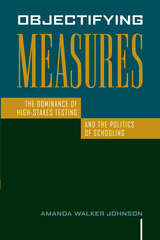
In the past twenty years, the number of educational tests with high-stakes consequences—such as promotion to the next grade level or graduating from high school—has increased. At the same time, the difficulty of the tests has also increased. In Texas, a Latina state legislator introduced and lobbied for a bill that would take such factors as teacher recommendations, portfolios of student work, and grades into account for the students—usually students of color—who failed such tests. The bill was defeated.
Using several types of ethnographic study (personal interviews, observations of the Legislature in action, news broadcasts, public documents from the Legislature and Texas Education Agency), Amanda Walker Johnson observed the struggle for the bill’s passage. Through recounting this experience, Objectifying Measures explores the relationship between the cultural production of scientific knowledge (of statistics in particular) and the often intuitive resistance to objectification of those adversely affected by the power of policies underwritten as "scientific."
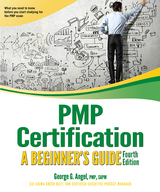
This beginner’s guide will teach you real-world project management skills for any project and will help prepare you to become a certified Project Management Professional (PMP) or Certified Associate Project Manager (CAPM).
This fourth edition provides up-to-date information on how to effectively manage projects, programs, and portfolios to achieve organizational success. It includes tips and sample questions at the end of each chapter as well as a mock exam to help prepare you for the Project Management Institute (PMI) certification exams.
This text follows the three PMI domains: People, Business Environment, and Processes. A case study with detailed real-world examples, sample templates, and actual project documents guides you through your own projects, from charter to close, using all five project groups (initiating, planning, executing, monitoring and controlling, and closing projects).
This edition takes the standard processes and framework for traditional projects introduced in PMI’s sixth edition Project Management Body of Knowledge (PMBOK) and adds the new focus on Agile (adaptive) project management methods, tools, and techniques in PMBOK’s seventh edition to enhance your knowledge and ability to handle a wide range of projects.
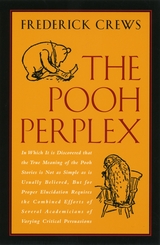
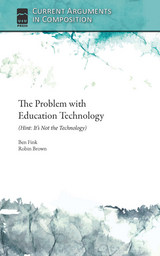
Education is in crisis—at least, so we hear. And at the center of this crisis is technology. New technologies like computer-based classroom instruction, online K–12 schools, MOOCs (massive open online courses), and automated essay scoring may be our last great hope—or the greatest threat we have ever faced.
In The Problem with Education Technology, Ben Fink and Robin Brown look behind the hype to explain the problems—and potential—of these technologies. Focusing on the case of automated essay scoring, they explain the technology, how it works, and what it does and doesn’t do. They explain its origins, its evolution (both in the classroom and in our culture), and the controversy that surrounds it. Most significantly, they expose the real problem—the complicity of teachers and curriculum-builders in creating an education system so mechanical that machines can in fact often replace humans—and how teachers, students, and other citizens can work together to solve it.
Offering a new perspective on the change that educators can hope, organize, and lobby for, The Problem with Education Technology challenges teachers and activists on “our side,” even as it provides new evidence to counter the profit-making, labor-saving logics that drive the current push for technology in the classroom.
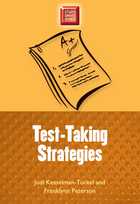
Test taking is a skill apart from learning course material, a skill every student must acquire in order to survive. Test-Taking Strategies is the book for anyone who has ever dreaded an exam.
Strategies for taking every kind of test are dealt with—objective tests (multiple choice, true/false, matching), essay tests, and oral exams. The authors also offer help for handling anxiety, explaining relaxation and desensitization techniques that help students control nervousness and keep it from detracting from performance. There are tips for managing time during the test, knowing when to guess, and for pulling answers out of your memory even when the question drew a blank at first glance.
Essay tests and oral exams are particularly gruesome for most students, and until now there has been very little advice for handling such tests. Test-Taking Strategies includes plenty of advice for developing ideas while under pressure.
READERS
Browse our collection.
PUBLISHERS
See BiblioVault's publisher services.
STUDENT SERVICES
Files for college accessibility offices.
UChicago Accessibility Resources
home | accessibility | search | about | contact us
BiblioVault ® 2001 - 2024
The University of Chicago Press









